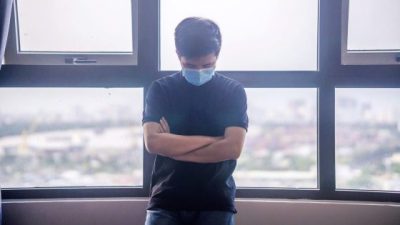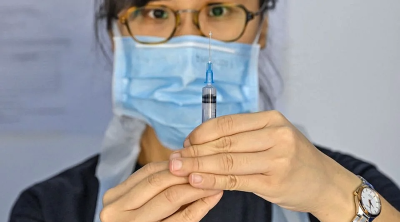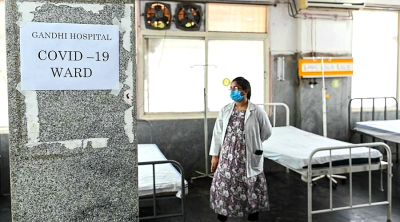Sin Chew Daily
For almost two years in our ongoing fight against the coronavirus, we have occasionally stumbled and suffered several major hiccups but have also accumulated a good deal of experiences.
In the beginning, the government indeed lacked good strategies and had to rely on strict lockdown measures to curb the spread of the virus. With fast test kits now readily available, we will now need to modify our strategies to shut out the virus.
Thanks to the health ministry’s unrelenting efforts, we have recorded very encouraging results in our vaccination program, with over 95% of adult population now fully vaccinated.
That said, vaccination is not the only way to tackle the virus. Screening is playing an increasingly important role, too.
Health minister Khairy Jamaluddin has announced that the National COVID-19 Testing Strategy (NTS) would be introduced from Monday (Nov 29). Primary school students below the vaccination age will have to undergo weekly screening. Under NTS, primary school students will have to take turns to go for the tests every week for those without any symptoms while pupils presenting COVID-19 symptoms must be screened. The tests must be carried out on at least 10% of the school population by rotation.
Reinforcing screening has become a major part in curbing the spread of the virus in hope of achieving the effects of early detection, early quarantine and early treatment so that the infection chain can be broken. Prior to this, we failed to break the infection chain due to insufficient tests carried out to instantly identify infected individuals.
With most of the restrictions now lifted and most economic sectors reopened, employers are back to their offices while pupils return to their schools for physical lessons. Man-to-man contacts and interactions are expected to increase, making instant screening all the more vital.
 When the government allowed students to go back to their schools for classes earlier, new infection clusters ensued. This shows that SOP compliance alone may not fully guarantee our children’s safety. The government needs to come up with the new screening strategy to effectively prevent the emergence of new infection clusters at schools so that parents will feel more at ease sending their children to school.
When the government allowed students to go back to their schools for classes earlier, new infection clusters ensued. This shows that SOP compliance alone may not fully guarantee our children’s safety. The government needs to come up with the new screening strategy to effectively prevent the emergence of new infection clusters at schools so that parents will feel more at ease sending their children to school.
In a similar manner, workplace screening is also not to be taken lightly. Under the NTS, the employers can adopt the appropriate screening measures to minimize the risk of infection. Employers must fully cooperate with the government’s testing strategy and not to see it as an additional burden because a workplace cluster will eventually wreak even more severe damages on the companies involved.
Meanwhile, due to the emergence of the new Omicron variant, screening has become even more crucial now in our anti-virus policy.
Many countries have taken steps to block the invasion of Omicron classified as a highly transmissive variant.
Both Malaysian and Singapore authorities have already mandated rapid antigen tests for all passengers arriving under the VTL (Vaccinated Travel Lane) scheme.
With the reopening of economy and national borders, we will invariably have to face the risk of further virus transmission, and the only ways to minimize the risk are full SOP compliance and screening tests.
In other words, reinforced screenings have become an essential and indispensable anti-virus strategy as the coronavirus continues to ravage globally.
ADVERTISEMENT
ADVERTISEMENT








































